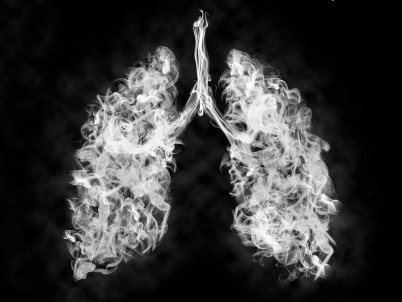The first trial of lung cancer screening in New Zealand is about to get underway following a nearly $2 million grant from the Health Research Council of New Zealand (HRC) facilitated through the Global Alliance for Chronic Diseases programme.
University of Otago senior Māori health researcher Professor Sue Crengle (Kāi Tahu, Kāti Māmoe, Waitaha), a GP and public health medicine specialist, will lead the trial that focuses on developing a lung cancer screening process that will reduce the stark inequities in lung cancer incidence and survival rates between Māori and non-Māori.
The funding announced today will go towards answering one of the key research questions that will inform a future lung cancer screening programme. The research will determine whether inviting individuals to participate in lung cancer screening via GPs (as is done with cervical cancer screening) or at a central hub (as is done with breast cancer screening) results in better health outcomes for Māori.
Lung cancer is the single biggest contributor to the difference in life expectancy between Māori and non-Māori, with lung cancer the leading cause of death for Māori women and the second leading cause of death for Māori men after cardiovascular disease. Māori women’s rates are more than four times higher and Māori men’s rates nearly three times higher than those of non-Māori.
“Lung cancer is a major public health and equity issue in Aotearoa New Zealand. The way to make sure any future national lung cancer screening programme is equitable for Māori is to design the whole screening programme so that it works for Māori from the get-go, which is what we are trying to do with this trial. It would be absolutely unconscionable to implement a lung cancer screening programme that makes inequities worse,” says Professor Crengle.
The trial will be hosted at Waitematā District Health Board, in collaboration with Auckland District Health Board (ADHB), including key clinicians from primary care, respiratory, radiology and oncology services. The research team will recruit and assess the level of risk for Māori smokers or ex-smokers, aiming to undertake a low dose CT (computerised tomography) scan for approximately 500 participants at high-risk of lung cancer, aged between 55 and 74 years.
While survival rates from lung cancer in New Zealand are poor (with the five-year survival rate only 12 percent), Professor Crengle says this is largely due to people receiving a late diagnosis. She says international lung cancer screening trials show that early detection lung cancer screening using low dose CT scans can reduce mortality from lung cancer by 20 to 24 percent.
HRC Chief Executive Professor Sunny Collings says funding high-quality research that upholds Te Tiriti o Waitangi and drives equitable cancer outcomes for New Zealanders is a priority for the Government in the New Zealand Cancer Action Plan. The HRC, Ministry of Health and Te Aho Cancer Control Agency have also specifically referred to equitable lung cancer screening as the number one priority in a recent funding call for cancer research.
“This trial will provide us with some critical early information to help inform what a national, equitable and clinically safe lung cancer screening programme could or should look like in New Zealand,” says Professor Collings.
2021 HRC Global Alliance for Chronic Diseases Cancer Call recipient
Professor Sue Crengle, Otago University
Optimising lung cancer screening for Māori: comparing invitation processes
36 months, $1,959,509
